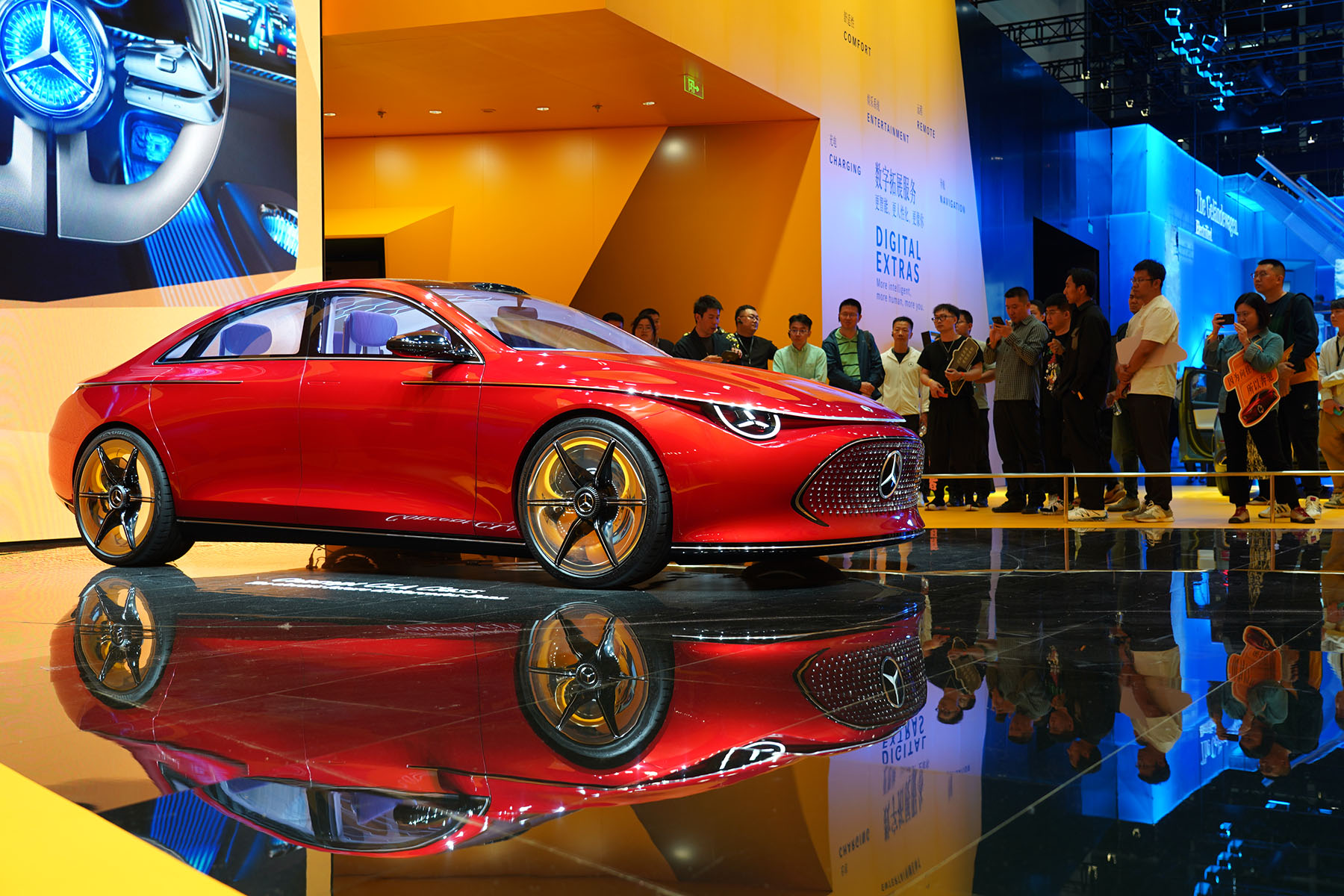European marques among those to commit investment

Global automotive executives have reaffirmed their commitment to China through sustained investments, underscoring the nation's role as a hub for technological innovation and industrial progress.
Just like other European automotive companies, Mercedes-Benz has been among the biggest foreign beneficiaries of China's rapid economic growth, said Ola Kaellenius, chairman of the board of management of Mercedes-Benz, at the China Development Forum earlier this month.
"We remain committed to long-term investment in China, which is a main pillar of our global strategy and a key driver of our electric and digital transformation," Kaellenius said.
READ MORE: International brands losing influence as market grows
This year marks the 20th anniversary of Mercedes-Benz's research and development in China, and its production collaboration with BAIC, resulting in more than 5 million vehicles delivered.
Over the last five years, the German automaker has invested 10.5 billion yuan ($1.44 billion) in China to accelerate the localization of advanced technologies and products at "Chinese speed".
Kaellenius said the automaker continues to increase localization efforts and is investing more than 14 billion yuan with local partners to enrich localized portfolios, including the long-wheelbase electric CLA sedan, followed by the long-wheelbase GLE SUV and an all-new electric van in the coming years in China.
Leveraging its R&D centers in Beijing and Shanghai, Mercedes-Benz has enhanced connectivity, digitization, automated driving features and EV transformation. An illustration of the efforts is the development of the MB.OS operating system, set to debut in China with the new CLA.
In addition, Mercedes-Benz has become the first international automaker to obtain approval for the testing of Level 4 automated driving for designated urban roads and highways in Beijing.
For BMW Group, another German automotive powerhouse, its strategic alignment with China's technological and industrial evolution underscores its role as both a beneficiary and contributor to the nation's automotive transformation.
Since establishing its joint venture in 1994, the company has embedded itself into China's supply chain, R&D ecosystem and consumer culture — an approach epitomized by its "In China, For China" philosophy.
"For more than three decades, China has been more than a market for the BMW Group: we feel at home in China. Not only do we produce and develop vehicles locally, but we also actively take part in Chinese society," said Oliver Zipse, chairman of the board of management of BMW AG.
He added that China's technological and industrial advancements set global benchmarks and BMW will seize this momentum to drive high-quality development with its partners in China.
The automaker has invested 116 billion yuan in its production base in Shenyang, Liaoning province, since 2010. Its R&D network in China is the largest outside Germany, spanning Beijing, Shanghai, Shenyang and Nanjing in Jiangsu province.
The company's Shanghai design team is leading the development of the Neue Klasse vehicles tailored for the Chinese market, blending local aesthetics with cutting-edge technologies.
The battery for Neue Klasse vehicles has been developed in collaboration with Chinese battery giant CATL. The two sides have joined hands since 2012, when BMW became CATL's first customer among automakers, as a trailblazer in Sino-foreign cooperation.
Holger Klein, CEO of ZF Group, delivered a speech about AI at the forum, saying that "China has long been at the forefront of AI innovation, with leading technology firms and dynamic startups setting impressive standards. Recent breakthroughs — such as the DeepSeek model — demonstrate China's ability to push the boundaries of AI development.
"At ZF, we embrace the opportunities that AI provides and are proud to be part of this progressive journey," he said.
ZF's Chinese team has made strides with AI-based off-road recognition software, which uses chassis data to enhance vehicle control on rough terrain, thereby improving safety and performance under challenging conditions, Klein said.
In its smart factories across China, AI-powered predictive maintenance minimizes downtime and ensures maximum production line efficiency. AI also plays a crucial role in the visual quality inspection of products, identifying even the smallest deviations to maintain high reliability.
The integration of AI spans various functions, including R&D, production and operations, with more than 20 AI-driven projects across ZF's operations in China.
ALSO READ: Global auto industry stocks slump as 25% tariff on US imports looms
"China, as the world's largest auto market, has always been strategic for the ZF Group. Many of our new products and cutting-edge technologies have made their world premieres in China in recent years," said Klein.
Another auto supplier, Bosch, positions China as both a manufacturing and R&D hub. Stefan Hartung, chairman of the board of management at Bosch, said they have witnessed tremendous changes in China, with an increasing emergence of innovative economies, including the fast-evolving AI sector.
Bosch has collaborated with Chinese AI companies, such as autonomous driving startup WeRide. The company has also partnered with Tencent in areas of public clouds, autonomous driving and intelligent cockpits.


